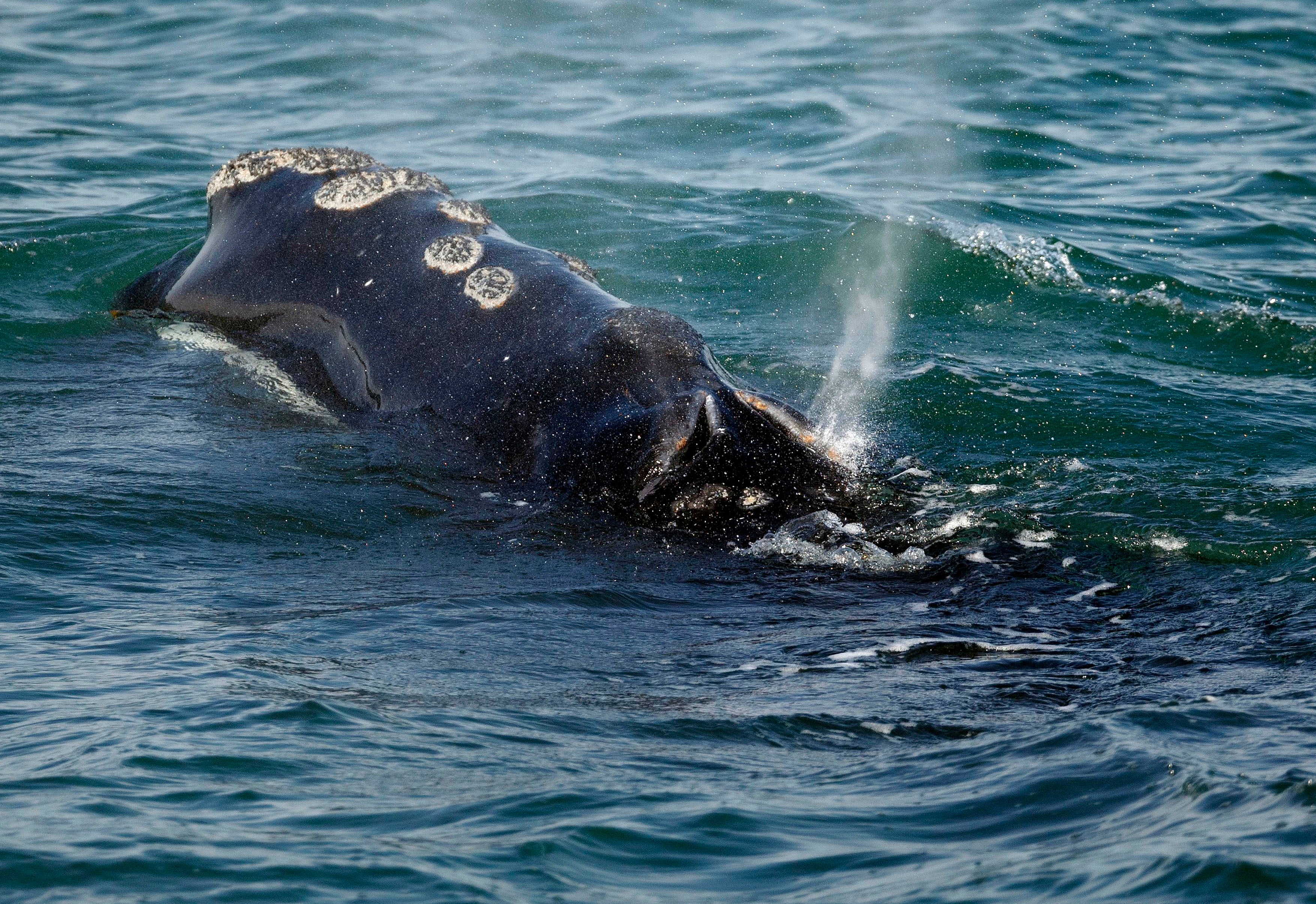Lobster fishing will face restrictions to try to save whales
America’s lobster fishing industry will face a host of new harvesting restrictions amid a new push from the federal government to try to save a vanishing species of whale

Your support helps us to tell the story
From reproductive rights to climate change to Big Tech, The Independent is on the ground when the story is developing. Whether it's investigating the financials of Elon Musk's pro-Trump PAC or producing our latest documentary, 'The A Word', which shines a light on the American women fighting for reproductive rights, we know how important it is to parse out the facts from the messaging.
At such a critical moment in US history, we need reporters on the ground. Your donation allows us to keep sending journalists to speak to both sides of the story.
The Independent is trusted by Americans across the entire political spectrum. And unlike many other quality news outlets, we choose not to lock Americans out of our reporting and analysis with paywalls. We believe quality journalism should be available to everyone, paid for by those who can afford it.
Your support makes all the difference.America s lobster fishing industry will face a host of new harvesting restrictions amid a new push from the federal government to try to save a vanishing species of whale.
The new rules, which have loomed over the profitable lobster industry for years and were announced Tuesday by the National Oceanic and Atmospheric Administration are designed to protect the North Atlantic right whale. The whales number only about 360 and are vulnerable to lethal entanglement in fishing gear.
NOAA said it expects the new rules will result in a reduction in nearly 70% of the risk of death and serious injuries the whales can suffer from entanglement. The rules had long been expected to focus on reducing the number of vertical ropes in the water, and they will.
The rules reduce the number of rope lines that link buoys to lobster and crab traps, NOAA said. The rules will also require the use of weaker ropes so whales can more easily break free if they do become entangled, the agency said. NOAA said the rules also expand the areas of ocean where fishing with trap rope is prohibited or limited.
“The new measure in this rule will allow the lobster and Jonah crab fisheries to continue to thrive, while significantly reducing the risk to critically endangered right whales of getting seriously injured or killed in commercial fishing gear,” said Michael Pentony, regional administrator of NOAA's Greater Atlantic Regional Fisheries Office, in a statement Tuesday.
Members of the lobster fishing industry have said strict new rules could make it difficult to get lobsters to consumers.
The lobster industry has been successful in recent years, with heavy hauls of the crustaceans to the docks and strong prices for them at markets. However, the industry has also had to contend with volatile foreign markets and the economic impact of the coronavirus pandemic, which hit the seafood sector hard.
The U.S. lobster fishery is mostly in Maine, and the Maine Lobstermen's Association has been one of the lead groups arguing in favor of whale protections that the industry can live with. The group's executive director, Patrice McCarron, said Tuesday the organization was still digesting the new rules and couldn't comment on them yet.
McCarron said in July that the industry was “very anxious to know what the rules actually say” because they will result in changes to lobster fishing.
Right whales were once abundant off the East Coast, but they were decimated by hunting during the commercial whaling era. They’ve been listed as endangered since 1970, and conservationists have sounded the alarm about high mortality and low reproduction in the remaining population in recent years.
The right whale population was closer to 450 just a few years ago. They're also jeopardized by climate change and fatal collisions with large ships.
Some environmental groups said Tuesday they feared the new rules don't go far enough to protect the whales. The rules would be better if they did more to keep the whales away from trap rope altogether, said Gib Brogan, senior campaign manager for conservation group Oceana
“If there are areas where whales are found or expected to be, that stress needs to be removed,” Brogan said. “We can't just rely on the theory of weak rope.”